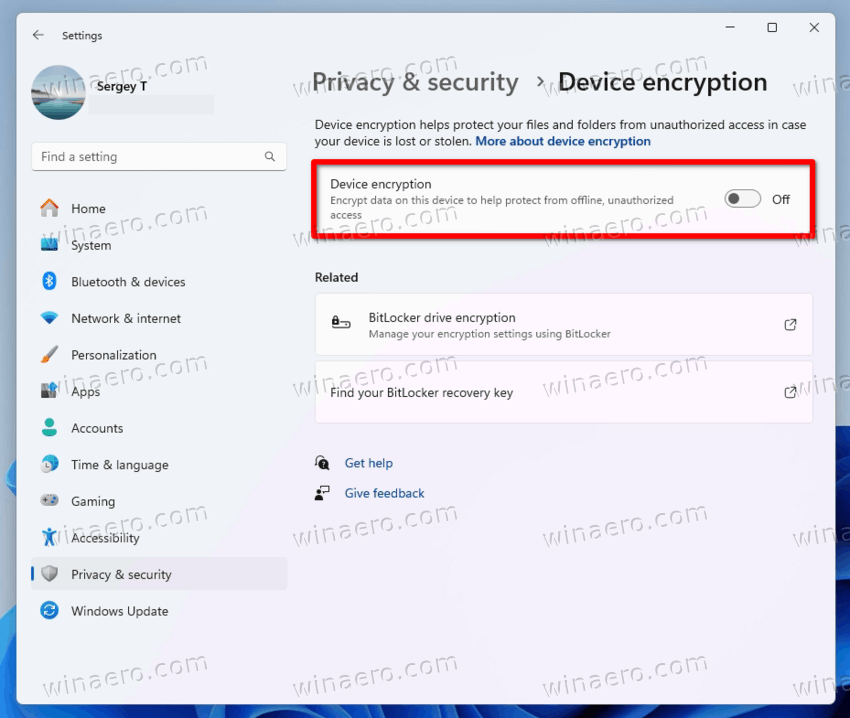A change in Windows 11 24H2 may have negative impact on your computer's performance. Microsoft is enabling BitLocker device encryption by default in the upcoming version of the OS. When you sign-in to the pre-installed Windows 11 or set it up on a new device with a Microsoft account or work / school account, the drive will be encrypted automatically.

Besides, starting in version 24H2 Windows 11 Home will also be encrypted with BitLocker. The latter doesn't require special hardware specs for its works, including the Hardware Security Test Interface (HSTI) or Modern Standby mode. Even more, it will start its work on devices with untrusted direct memory access (DMA) interfaces. It sounds like BitLocker has got a version with software encryption, sort of.
Advertisеment
The newest Windows 11 update, version 24H2, is preinstalled on Microsoft’s Copilot Plus PCs and is anticipated to be accessible for existing devices by late September. This implies that if you perform a clean installation of Windows 11 later this year or purchase a new PC that already has 24H2 installed, BitLocker device encryption will be activated by default. However, if you merely upgrade to version 24H2, Microsoft will not automatically enable device encryption.
The software-based encryption in BitLocker may affect SSD performance on certain devices. Last year's tests revealed it could reduce drive speeds by as much as 45 percent. Microsoft didn't comment this possible negative impact anywhere on its support website.
If you face any performance issues, you can disable drive encryption in Windows 11 24H2. According to TheVerge, it doesn't start automatically if you install Windows 11 with a local account. Otherwise, there are several methods to disable BitLocker during and after Windows installation. Use any of them.
It is obvious that BitLocker is now enabled for security reasons. Actually, it is great for portable devices, and it is a good idea to have it enabled. If your device will be stolen, the thief won't be able to access your data. However, if device's performance is a mission critical thing for you, disabling the "software" BitLocker may be a suitable solution.
Support us
Winaero greatly relies on your support. You can help the site keep bringing you interesting and useful content and software by using these options:

Are you certain about BitLocker (or Windows Device Encryption, on Home) being automatically applied on systems where it has never been enabled or was explicitly disabled? I have not seen anything from Microsoft that indicates that this will occur.
What I have seen, and experienced already on Pro (and above) editions of Windows 11 is that any freshly configured machine will have BitLocker enabled by default. That’s why part of my setup protocol for residential customers includes discussing this development and whether they wish to have BitLocker disabled immediately. It’s very easy and fast to turn it off with the manage-bde command on a drive that’s almost empty except for Windows itself, but if you have a large drive that’s already data packed, the process is much slower, and you need to make sure that there is enough “breathing room” available on the drive for it to do the work of decrypting.
https://support.microsoft.com/en-us/windows/device-encryption-in-windows-cf7e2b6f-3e70-4882-9532-18633605b7df
One of the mistakes that Microsoft make, is that they automatically assume that everyone has an Intel i7 processor !!! –